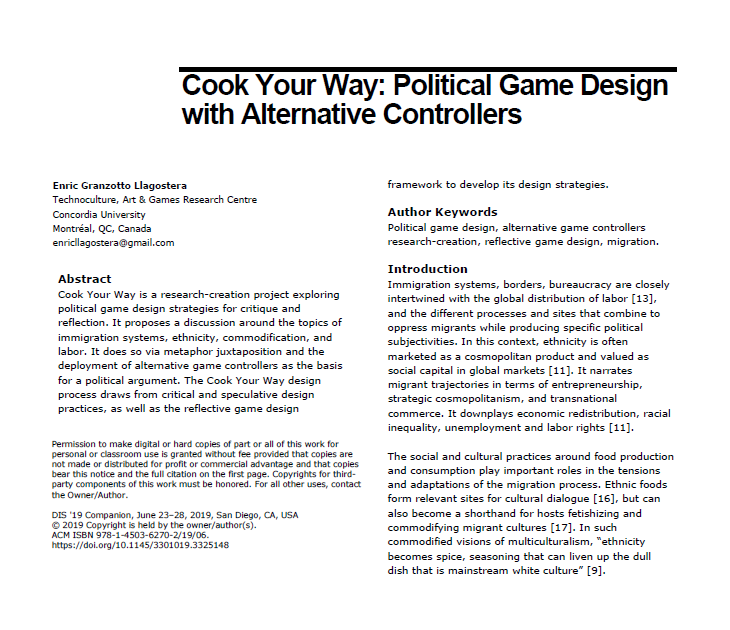As a result of my research during my MSc in Games at the IT University of Copenhagen, I wrote this thesis discussing criticality as a productive stance for game creators, drawing from different fields such as popular education and social movements in Latin America and views of criticality in design, game design and play. The thesis can be downloaded here. Here is its abstract:
Games and play are currently seen as having relevant impacts in changing a variety of spheres of people’s lives, such as work, education, and political action. However, many times games and play are uncritically deployed, as if they existed in a social and political vacuum, ready to be used whenever appropriate. The present research explores the concept of criticality as a productive perspective for problematizing such efforts of changing the world through games and play, with a special focus on game design, bringing to the discussion views from outside the game studies and design domain.
Criticality in game design is two-fold. First, it can mean creating games and play centered on the idea of performing critique and challenging dominant hegemonic values, beliefs and conventions, maybe supporting or creating spaces for change. With that in mind, I investigate existing formulations of criticality in play and games, analyzing the most important elements of that relationship that can affect game design. Secondly, criticality in game design can refer to taking it as a guiding principle or stance during the design practice of game designers, informing design goals, processes and other aspects of game design, turning it into a critical activity itself. In order to understand how criticality can affect design practice, I review and analyze a diversity of critical approaches to design and game design.
Finally, a synthesis of the more relevant elements and themes raised in these detailed analysis is produced, aimed at providing insight and productive questions to the practice of game designers engaged in critical efforts.

